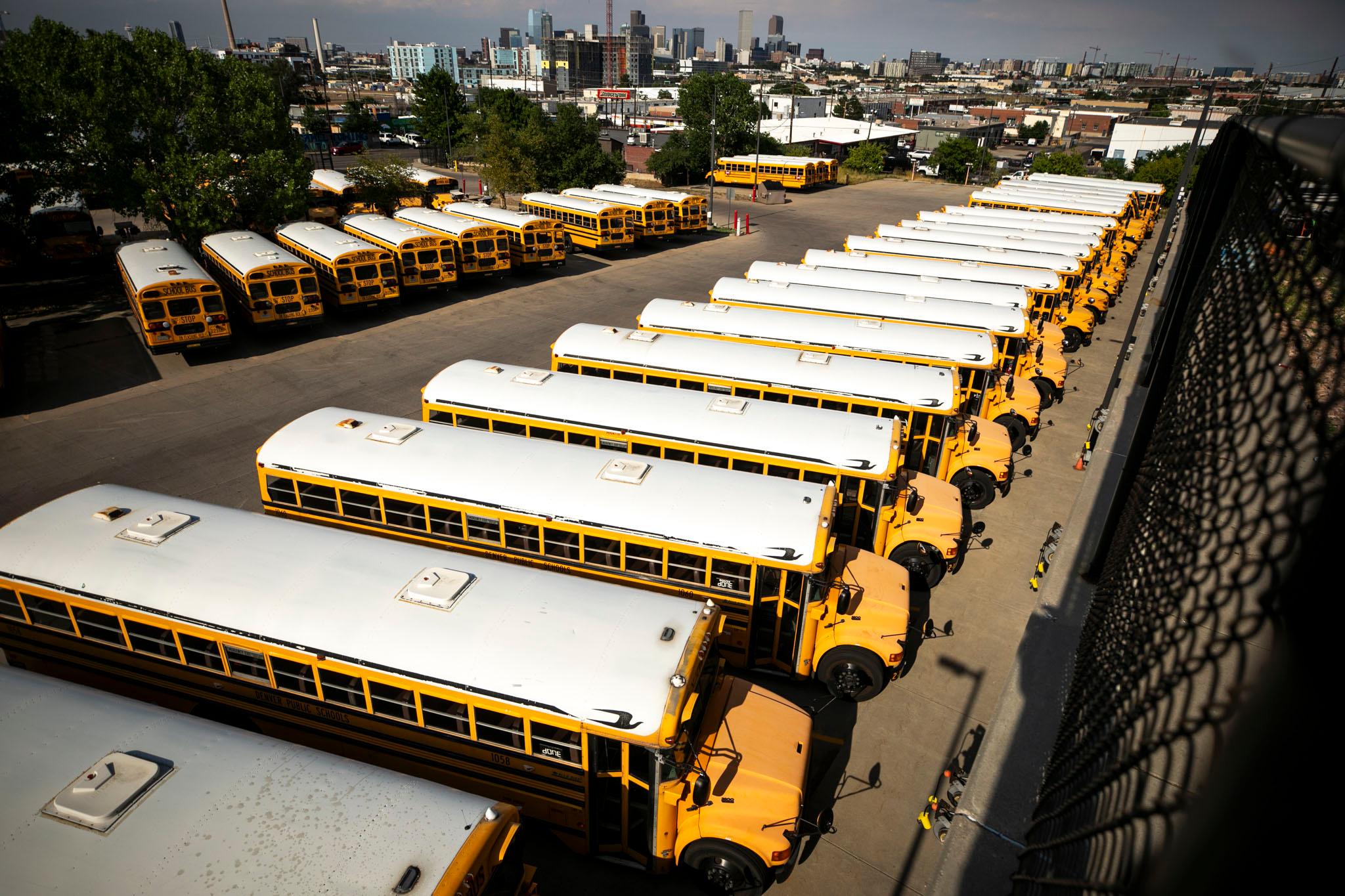Denver Public Schools’ teachers union has overwhelmingly ratified a new three-year contract with the district, ending months of negotiations that at one point required a mediator after the district declared an impasse. The agreement takes effect Sept. 1 for the 2025-28 school years.
More than 80 percent of members voted in favor of the new bargaining agreement that gives teachers a salary hike and most important to educators, addresses working and learning conditions. Some members of the 4,000-person union had rallied against the tentative agreement, calling for firm caps on class size and cost-of-living adjustments that are closer to inflation.
“As a democratic, member-led organization, every vote cast reflects our shared commitment to creating better working and learning conditions for Denver’s educators and students,” said Michelle Horwitz, bilingual speech-language pathologist and co-chair of the Denver Classroom Teacher Association bargaining team.
Salary hike
For this school year, educators will see an average salary increase of 7.88 percent, a $1,000 cost-of-living increase each year of the agreement and a one-time $1,000 bonus to educators. First-year educators will start at $57,666. The new top salary for educators with a doctorate is $124,233. Teachers will also receive raises based on their years of experience and education. In the second and third year of the agreement, teachers will receive a 4.15 percent salary boost and a $1,000 cost-of-living adjustment.
DPS superintendent Alex Marrero praised the outcome.
“Despite facing budget uncertainty due to declining enrollment, state funding issues and potential federal cuts, both sides found common ground.”
He said by the end of the three-year contract, educators will have received an average total raise of more than 40 percent since 2022. Teachers say that’s because they were so far behind other districts and had to make up for years of being underpaid.
A “soft cap” on class sizes
The agreement also addresses class sizes, a major concern for educators. Starting in 2026, the district has committed to working toward a goal of maintaining K-5 class sizes at 30 students or fewer. Up until now, some class sizes have crept up to 35 students. The contract requires the district to conduct quarterly reports on class size and report those to a committee, documenting efforts to reduce overcrowding. Those reports, however, are only for grades K-5.
The contract includes language around equity, addressing mental health needs of educators and a “workload calculator” for special education teachers, counselors, nurses, social workers, psychologists and other support staff. That calculator is supposed to prevent burnout.
Union leaders said the contract represents meaningful progress but emphasized that significant challenges remain.
"Not every challenge our students and educators face was solved through this process,” said Brian Weaver, the association’s bargaining team co-chair. He said the union is already preparing for 2028 contract negotiations.
Union President Rob Gould highlighted the ongoing need for sustainable school funding to help reduce class sizes and ensure competitive pay for educators.
“This means standing up to billionaire-backed private interests by supporting and electing pro-union and pro-public education candidates and ballot measures at every level of government,” he said. “It also means working collectively to ‘de-Bruce’ so that schools are no longer forced to operate under restrictive budgets caused by revenue limits.”
The term “de-Bruce” is a reference to Doug Bruce, the sponsor of the amendment known as TABOR, the Taxpayer’s Bill of Rights; to de-Bruce is to bypass some of the strict tax requirements in TABOR.
The bargaining agreement includes a memorandum of understanding to increase educator pay if a potential ballot measure is passed by Denver voters or via a statewide ballot measure in 2025 or 2026, according to the union.
The DPS Board of Education will vote on the collective bargaining agreement at an upcoming meeting.












